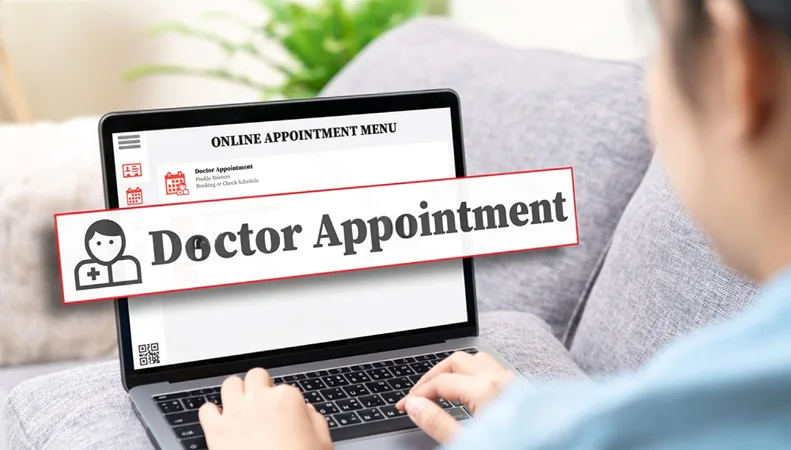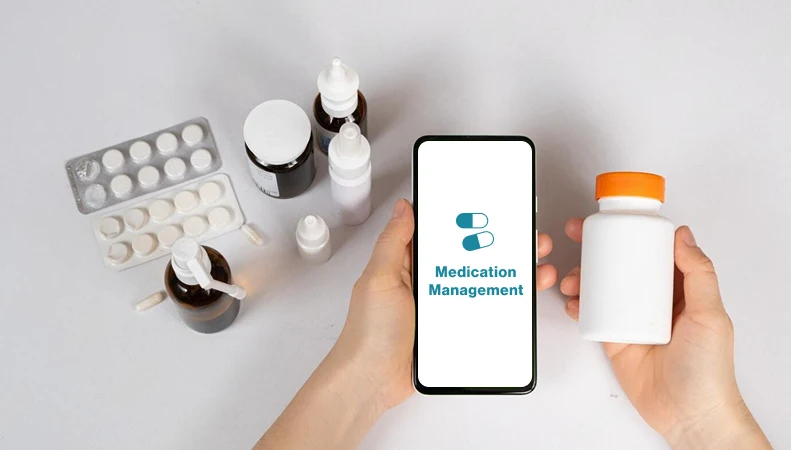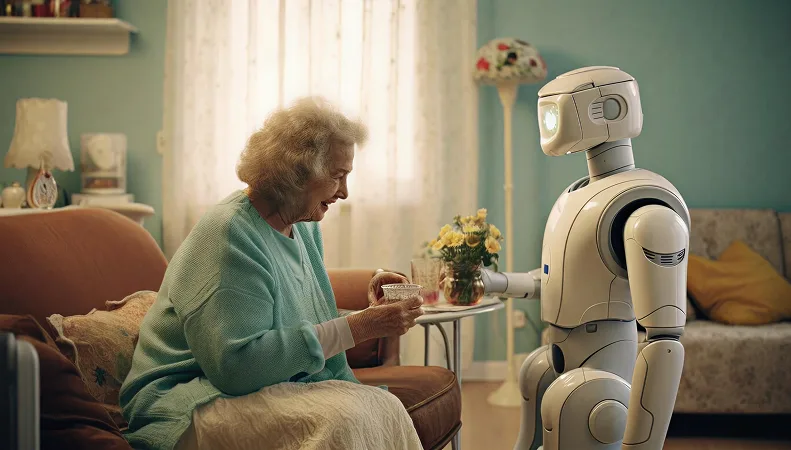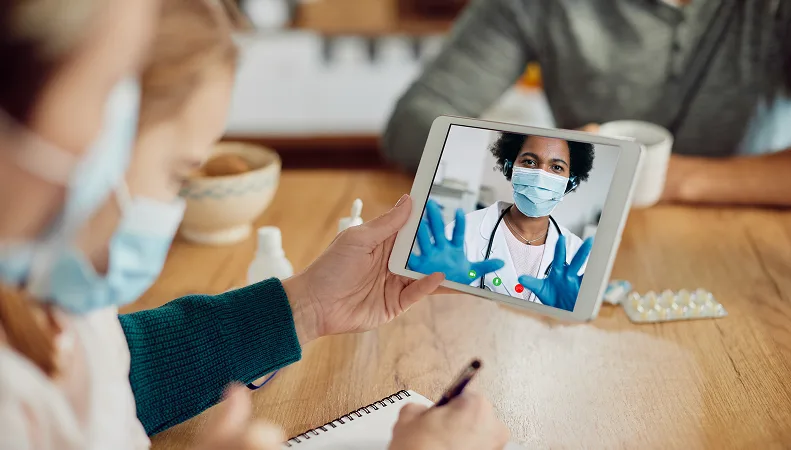AI/ML
AI Chatbots in Healthcare: How AI Chatbots Are Automating the Healthcare Industry
Written ByYash Vibhandik
CEO, Bitontree
Published:22 April 2025
20 minutes read

Healthcare is being significantly impacted by technology. Most healthcare practices employ technology to enhance the patient experience. Due to modern innovations like generative AI in healthcare, natural language processing (NLP), as well as machine learning (ML), the healthcare sector is changing at a rate that has never been seen before. Among these developments, AI chatbots have become game-changing tools that increase productivity in a variety of sectors, including pharmacies, research labs, and hospitals.
By making things faster, more effective, and easier to access, these intelligent virtual assistants are revolutionizing the delivery of healthcare services through healthcare automation. AI is enhancing the entire healthcare experience for patients and professionals, from chatbots that assist in handling patient queries to virtual assistants in hospitals. According to predictions, the healthcare chatbot industry is expected to grow at a rapid rate and reach $943.64 million by 2030.
AI chatbots are increasingly being used in healthcare settings, and let’s understand how they are changing and simplifying the operational workflows.
What Are AI Chatbots in Healthcare?
Chatbots are virtual assistants that are mostly used to help healthcare staff and patients. If a patient requests an appointment, an AI Chatbot will schedule it automatically without the administrator's interference. Furthermore, it will assist providers by answering medical questions and addressing health problems.
Additionally, patients can inquire at any time about common illnesses, treatments, and specific symptoms of diseases. The following are integrated with these chatbots:
- Websites
- Mobile Apps
- Patient Portals
- Messaging Platforms
- Electronic Health Records (enabling AI medical records management)
Integrating it with well-known platforms makes it more accessible and convenient for doctors as well as patients. Chatbots help in providing precise answers to patient questions by using preprogrammed responses. They give accurate and useful information by analyzing user input. They also retain previous conversations to facilitate more effective future interactions, showcasing the power of conversational AI in healthcare.
How are AI chatbots used in Healthcare?
There are several applications for these Gen AI chatbots in the healthcare field.
1. Appointment Scheduling & Reminders

Appointments were previously scheduled manually by healthcare workers. This frequently results in frustration and can take a lot of time. The manual process can be eliminated with the use of chatbots. It enables patients to make appointments immediately and without staff interference. Patients can:
-
Choose their timeslots without visiting the facility.
-
Their convenience determines the appointment's date and hour.
-
Schedule Appointment.
-
The chatbot will immediately confirm the appointment.
After that, it will remind the patients and the providers of the scheduled appointment. Scheduling conflicts and missed appointments will decrease as a result.
2. Medication Management

The majority of patients would take their medications on time. Furthermore, they tended to forget about their medications, causing a delay in their treatment plan.
Some platforms help patients manage medication schedules with reminders for dosage and refills, like Bitontree’s healthcare service platform. However, AI chatbots can make timely reminders more personalized. Patients receive automatic reminders from the chatbot that is integrated with patient portals to ensure that they are taking the medications as prescribed. Furthermore, it offers basic instructions such as:
-
Dosage
-
Medication timing
-
Safety precautions
Patients can ask questions concerning their medications. The AI chatbots will respond immediately.
3. Mental Health Support & Therapy Chatbots

Some people may be uncomfortable discussing their situation with real therapists. In this case, patient engagement chatbots provide a safe setting for discussing personal issues. These chatbots offer basic guidance to clients. It does not, however, fully take the role of professional real-world therapists. When therapists are unavailable, they provide clients with mental health support. These chatbots assist with:
-
Basic emotional guidance
-
Mental wellness tips
-
Coping strategies for anxiety and stress
-
Daily check-ins and mood tracking
4. Virtual Health Assistants for Chronic Disease Management

Chronic disease necessitates continuous monitoring and requires continuous medical supervision. While it is technically impossible, AI chatbots make it happen. Patients might use it to:
-
Track symptoms
-
Monitor patient vitals
-
Medication schedules
-
Lifestyle habits
When a patient's health condition requires immediate attention, these chatbots automatically notify the providers. Patients will receive personalized medical tips for long-term disease management. For many people, these technologies improve their daily disease management.
5. Helping Providers & Nurses with Documentation
Healthcare professionals often spend hours updating records and writing reports, which can take time away from patient care. AI chatbots help reduce this burden by streamlining documentation workflows. They assist by:
-
Transcribing doctor-patient conversations
-
Summarizing medical histories and notes
-
Retrieving and verifying clinical guidelines
-
Assisting nurses with quick reference to medical instructions
6. Training & Education for Healthcare Professionals

Continuous training is essential for healthcare professionals to stay updated on the latest treatments. Chatbots offer medical learning resources, medication information, and case studies. It also provides answers to queries on medical conditions, procedures, and symptoms. Healthcare organizations and hospitals use these chatbots to train their employees about new medical technology. This makes learning more efficient and accessible to medical teams. AI chatbots support healthcare professionals by delivering accessible learning resources and updates. These chatbots offer:
-
Quick answers to medical queries
-
Interactive modules on diseases and treatments
-
Access to recent case studies and medical literature
-
Training content on emerging healthcare technologies
Key Benefits of AI Chatbots in Healthcare
Incorporating chatbots into the healthcare industry has resulted in an exceptional transformation, completely changing how patients seek medical care. The following are some noteworthy benefits of using AI chatbots in the healthcare sector:
For Patients
-
Round-the-clock availability: Unlike human employees, virtual assistants are not restricted by business hours. Customers can contact chatbots whenever they want and get help immediately.
-
Minimal waiting time: Compared to humans, machines respond to inquiries considerably much faster. Additionally, chatbots in the healthcare industry can be set up to identify emergencies and respond quickly, informing users of what to do or what might happen to them in particular situations.
-
Access to critical information: Chatbots can provide patients with reliable navigation and help them choose the best option by providing reference data on local pharmacies and medical facilities, their hours of operation, and other information.
-
Anonymity: The medical industry handles sensitive information that many patients desire to keep private. People can feel more at ease sharing information on mental health, sexual abuse, STD tests, and other concerns when chatbots are used in the healthcare industry.
-
Health education: Health education is one of the areas where healthcare chatbots have the biggest impact. They offer personalized, clear information about diseases, treatments, and ways to prevent them. This ongoing education supports preventative care, develops a proactive approach to health, and gives patients the power to make educated health decisions.
For Healthcare Providers
-
Data collection and analysis: Chatbots are powerful data tools that are used for more than just communication. They gather important health information from their interactions with patients, which may be examined to identify trends, improve treatment plans, and even anticipate potential risks. Better patient care and results are achieved when healthcare providers make evidence-based decisions and stay educated due to the ongoing data collection and analysis.
-
Appointment scheduling: Healthcare chatbots make it easy to schedule appointments. A simple, conversational interface makes it easy for patients to schedule, reschedule, or cancel appointments. This convenience improves the efficiency of healthcare delivery by lowering the administrative load on medical staff and reducing the chance of missed appointments.
-
Ensuring reliability: Not all doctors and healthcare workers are available 24 hours a day, seven days a week, but having a chatbot allows you to assist patients at any time of day, giving your healthcare center a greater sense of security and reliability.
For Hospitals & Clinics
-
Cost savings: Chatbots are said to help healthcare facilities save up to $3.7 billion globally by automating repetitive procedures and offering initial consultations. Due to this automation, employees can focus on more difficult and important tasks rather than handling common queries and performing administrative work. Further cost savings can be achieved by reducing the number of unnecessary in-person visits by using chatbots to handle initial patient encounters.
-
Scalability: One major benefit of healthcare chatbots is their scalability. They can handle a large volume of interactions at once, ensuring that all patients receive immediate assistance. This skill is essential during health crises or peak periods when healthcare systems are under enormous pressure. Rapid scalability enables healthcare professionals to continue providing high-quality care even in challenging circumstances.
-
HIPAA-compliant, secure interactions: Chatbots integrate seamlessly with existing medical systems, protect patient data, and adhere to HIPAA regulations. This allows providers to concentrate more on patients while chatbots manage routine tasks. They are essential to the automation of modern healthcare, helping to schedule appointments, securely communicate with patients, and deliver insurance information while maintaining HIPAA compliance.
Challenges around Implementing Chatbots in healthcare and solutions to overcome them
The implementation of AI chatbots in healthcare presents several challenges, from patient trust to regulatory compliance. Here's an overview of the main difficulties and possible solutions:
1. Keeping Patient Data Safe and Compliant
Chatbots manage sensitive medical data, making them a potential target for cyber threats. To protect patient privacy, they also have to comply with strict healthcare regulations, including HITECH, GDPR, and HIPAA. A security breach could result in significant fines and loss of trust.
How to Solve It:
Use role-based access to limit unauthorized users, store data on safe, compliant servers, and make sure all communications are encrypted from beginning to end. Finding vulnerabilities before they become problems is made easier by routine penetration tests and security audits.
2. Connecting with Existing Healthcare Systems
Chatbot integration is challenging because the majority of clinics and hospitals use distinct Electronic Health Record (EHR) systems. Medical chatbots cannot update medical histories nor offer individualized responses if they are unable to access patient records.
How to Solve It:
To make sure the chatbot integrates seamlessly with different EHR platforms, use the FHIR and HL7 standards. Medical AI chatbots can retrieve and update patient records while maintaining security and compliance by creating API-based connections. The integration process can also be streamlined by working with EHR vendors.
3. Getting Patients to Trust and Use Chatbots
A lack of human empathy, data exploitation, and misdiagnosis are some of the reasons why many individuals are hesitant to use AI chatbots for healthcare assistance. They will not use the chatbot if they don't trust it.
How to Solve It:
Maintain transparency when handling and preserving patient data. When chatbot support is insufficient, offer a human support option. By sharing testimonies and success stories, patients can also feel more comfortable using the medical bot.
4. Ensuring Chatbots Provide Correct Guidance
Healthcare chatbots might misunderstand symptoms and provide inaccurate advice, which could mislead patients and present major health concerns. In contrast to doctors, they are unable to navigate ambiguous or insufficient patient inputs and lack clinical intuition.
How to Solve It:
Use AI models that recognize medical terminology and train medical chatbots using reliable medical datasets such as Med-PaLM or Med-BERT. Complex situations can be escalated to real doctors by a human in the loop system. Additionally, medical AI chatbots should make it clear that they provide guidance rather than diagnoses, encouraging patients to seek professional assistance when needed.
5. Handling Emergencies the Right Way
It is important to note that an AI chatbot in healthcare is not intended for life-threatening emergencies, and depending on it in a crisis could delay vital medical assistance. It must be able to identify urgent situations and, if required, escalate them to human involvement.
How to Solve It:
When urgent symptoms are identified, incorporate emergency escalation tools that connect users to 911 or emergency hotlines. Implement voice-assisted alternatives that allow users to contact for assistance. AI-powered natural language processing (NLP) models can be trained to identify emergency phrases such as "trouble breathing" or "severe chest pain" and send out signals for quick action.
Future of Chatbots in Healthcare
AI chatbots are anticipated to contribute more to improving healthcare efficiency and accessibility, which will ultimately result in a patient-centered experience through AI for patient engagement. AI chatbots in healthcare can significantly enhance patient care. Additionally, it can change the way healthcare is delivered in general and empower individuals. AI chatbots will be even more capable of facilitating patient engagement if they continue to be improved and incorporate modern technologies.
Improved medical delivery, cost savings, and general patient satisfaction are just a few of the enormous potential benefits of AI chatbots. Several interesting trends are developing as we look to the future, such as voice-activated chatbots, wearable and IoT device integration, and enhanced personalization.
1. Advanced Personalization
AI chatbots will improve user interactions by using patient data to generate highly customized health recommendations. Improved natural language processing skills will result in better chatbot support and interactions, which will improve communications. These enhancements in the quality of interactions and personalized recommendations have the potential to change patient care experiences and health outcomes drastically. Patients' health advice will be more relevant if interactions are more customized.
2. Integration with Wearables and IoT Devices
Wearable technology may connect with AI chatbots. This enables real-time monitoring of health data. Chatbots can provide proactive interventions along with customized health suggestions by integrating with wearable technology. By continuously evaluating health parameters and giving real-time feedback, wearable technology helps with patient health monitoring. Chatbots will be able to offer more rapid and precise health advice thanks to this integration, which will improve patient outcomes.
3. Voice-Activated Chatbots
The voice-enabled chatbots can offer more natural, accessible, and efficient patient interaction. Voice interfaces mimic real human conversations, making them more intuitive for users, especially those who are elderly, visually impaired, or not tech-savvy. Patients can speak naturally rather than type out messages or navigate apps.
How Bitontree Experts Can Help You Implement Healthcare AI Chatbot
AI-powered virtual health assistants help patients by offering customized medical guidance. If you want to model your healthcare business using AI development services to stay agile, anticipate customer demands, and extract valuable insights? Bitontree is available to help you integrate AI technology into your medical processes. Bitontree provides professional AI chatbot development services that transform patient care management.
Our innovative healthcare IT solutions, as a top provider of medical software development, help medical organizations improve patient care delivery, increase operational efficiency, and open up new revenue streams. We enable healthcare providers to automate procedures, enhance coordination, and remain ahead of industry trends by utilizing AI-driven solutions and digital tools. Our main focus is to develop customized AI chatbots to handle specific challenges faced by the healthcare industry.
-
Custom AI Voice Assistant: We create personalized AI voice assistants that provide dependable, real-time communication, transforming the way the healthcare sector interacts with services and systems.
-
GPT-Based Chatbots: Our GPT-based chatbot ensures more intelligent and customized human-like chats for a variety of use cases in hospitals by providing context-aware, natural dialogues.
-
Multilingual Chatbot Development: Use our multilingual chatbot development to enhance your healthcare business's capacity to interact with patients in their native languages.
-
Conversational AI Chatbots: Use our Gen AI expertise to create scalable, intelligent chatbots that understand conversations and give patients interesting experiences.
-
Voice-enabled Chatbot: Using natural language processing (NLP) and speech recognition, we create intelligent voice bots that transform user experiences and seamlessly integrate with the top voice platforms in the marketplace.
Our AI chatbots are scalable and efficient, capable of managing thousands of concurrent interactions without witnessing a drop in response quality.
The Bottom Line
AI chatbots have made significant advancements and have become much more advanced. We can now use chatbots for complex use cases as well as applications in healthcare, which reduces staffing issues, lowers overhead costs, and much more, thanks to innovation and technology. There are undoubtedly more interesting opportunities for chatbots to function effectively in the healthcare industry.
With Bitontree, healthcare professionals can effectively use chatbots to improve patient care. Our chatbots save time for staff and doctors by answering health-related queries, scheduling appointments, and reminding patients to take their medications. Our automated chatbots increase communication, cut down on wait times, and provide prompt replies to patients. This makes healthcare processes easier for everyone.
Free up your staff - Our AI chatbots automate 85% of routine queries.
Frequently Asked Questions
AI chatbots automate the appointment scheduling process by allowing patients to select available time slots, confirm appointments, and receive reminders. This reduces administrative workload and helps prevent missed appointments.
Bitontree offers professional AI chatbot development services, providing customized solutions for healthcare providers. We create scalable, intelligent chatbots to improve patient care, automate tasks, and enhance operational efficiency. Our services include voice-enabled, multilingual, and GPT-based chatbots.
Yes! Unlike human staff, chatbots provide instant responses anytime—ideal for after-hours queries, appointment scheduling, or medication reminders.
Yes. Advanced models support multiple languages, breaking barriers for non-native speakers and improving care accessibility globally.



